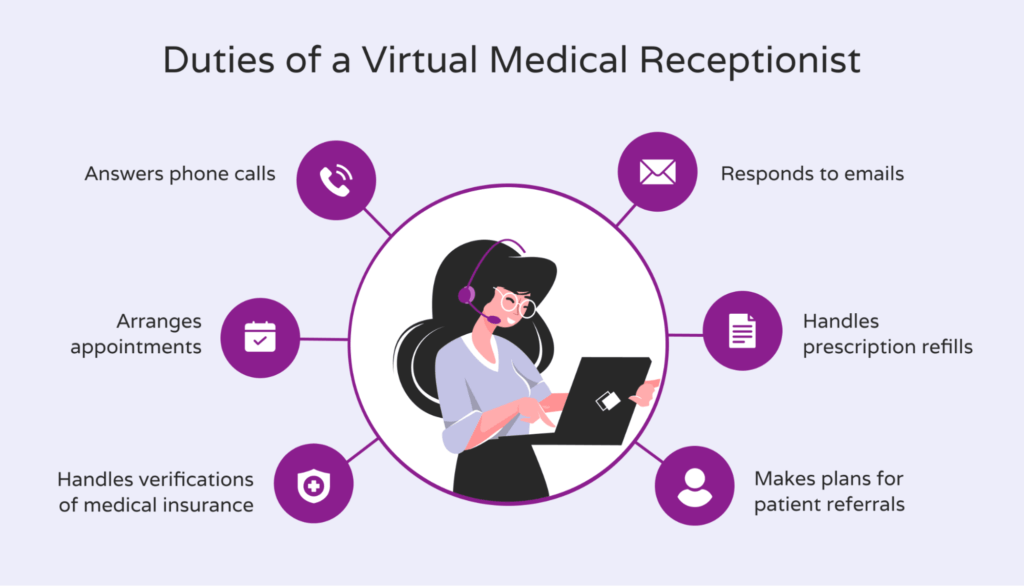Psychological therapy is a complex area of healthcare and, as such, it requires dedicated and fantastic staff. However, the demands of the coronavirus pandemic have pushed the healthcare system into a difficult situation. Psychology has been hit particularly hard. With psychological therapists getting further and further behind, this struggle is only going to continue. But there is a solution. By using virtual assistants in psychological therapy, you can reduce your clinicians’ workloads and serve your patients faithfully and professionally.
A Quick Guide to Virtual Assistants
Previously, psychological therapy services relied solely on healthcare assistants who had to be physically present at their premises. They were crucial for completing proofreading, scheduling appointments, and secretarial tasks, but they also had to commute to work every day. While this may have worked fine in the past, it wasn’t necessarily the best way to do business. And it’s important that you understand that there’s a modern solution.
Thanks to cutting-edge communication technology, you now have the option of hiring healthcare virtual assistants who can do it all from anywhere. Yes, you heard that right: anywhere. These virtual assistants can perform all the tasks that an on-site healthcare assistant can, but they do it remotely, all they need is an internet connection and a PC. This is a game-changing approach and means they can seamlessly connect to your practice's IT system and immediately start tackling your workload. And it doesn’t matter where in the world they are located.
Why Do You Need a Virtual Assistant?

The practice of integrating virtual assistants in psychological therapy services is an interesting one. It’s always important in business, however, to clarify the value behind decisions. A virtual assistant may, from what you have read so far, sound interesting, but you need to know exactly what they can deliver. Thankfully, you can rest assured that they will be able to help you achieve new highs. The most convincing arguments for bringing virtual assistants on board are:
Cost savings:
Money is always important in healthcare, especially when you consider that healthcare spending has quadrupled in the last 40 years. Therefore, it’s critical that your budgets are managed carefully. Wages, of course, are always one of the most draining elements of a budget. But it’s possible to minimize this area of outlay without compromising quality. Take, for example, a medical receptionist who completes significant amounts of administrative tasks. Typically, they will be on around $35,000 a year, but a virtual assistant can often bring in close to 78% in cost savings in comparison.
Email management:
Nowadays, healthcare workers are inundated with emails like never before. This growing demand for virtual communication quickly adds a lot of burden to your therapists’ workloads. In turn, this can lead to a drop in service quality. But there’s a simple solution: hiring a virtual assistant to handle email management. A fully trained and competent virtual assistant will take care of the inbox. This would allow your clinicians to focus on their core tasks. This means that prioritizing urgent emails and categorizing routine requests can be delegated effectively with full peace of mind. And, by streamlining your email management, you ensure that clinicians can invest their energy where it’s needed most.
Save Space:
Just imagine the real estate space you could save by choosing to work with virtual assistants. The demand for space in any business is always testing, but this is more pronounced in psychological therapy settings. Not only do you need space for your clinicians to work, but you want to minimize the disturbance that a busy administration team can generate. Accordingly, a smart way to optimize space, and provide a balanced environment for your patients, is to work with remote healthcare assistants.
Reduce stress:
A major concern in modern psychological therapy is the rising incidence of burnout in clinicians, a scenario which has been made by the pandemic. Consequently, incorporating a virtual assistant into your team can significantly alleviate burnout. This is achieved by the way in which virtual assistants in psychological therapy can manage the mental strain on the shoulders of clinicians. And it’s the resulting impact of this management which frees up clinicians to prioritize patient care. A mutually beneficial arrangement, the addition of a virtual assistant provides a vital solution.
Updating EMR:
Electronic medical records (EMR) are an essential part of patient care. They serve as a comprehensive record of a patient’s medical history and ensure this is available for review at any given moment. However, the task of keeping these records updated can be hard, as clinicians often lack the time to devote to such administrative duties. But a virtual assistant is one of the most effective ways to manage EMR updates. Fully trained in best EMR practices, a virtual assistant will bring an efficient and diligent approach to making sure information is entered correctly and in time.
Highly trained:
The growth of virtual assistants in the healthcare industry is amazing, and this is why so many virtual assistants are dedicating themselves to this sector. Accordingly, virtual assistants are focusing on training themselves to succeed in healthcare. They constantly update and refine their skills to stay current with industry standards. Virtual assistants can hit the ground running in psychological therapy settings. Aside from standard induction procedures, a virtual assistant should have the ability to instantly adapt to your software and tasks, not needing any training.
Medical transcription:
It’s still commonplace for clinicians to record audio copies of their consultations, this allows them to focus on the patient rather than typing notes into a computer. However, converting these audio notes into written records on the EMR is highly time consuming. This is where many clinicians struggle, but this task can be easily delegated to a fully trained virtual assistant. Taking the initiative to not only transcribe, but also enter these notes into the EMR, a virtual assistant can benefit both the clinician’s workload and accuracy of a patient’s notes.
Integrating a Virtual Assistant
Virtual assistants in psychological therapy can clearly make all the difference. With a wide range of skills at their disposal, it's a smart choice for reducing the administrative burden on clinicians. The popularity of virtual psychological therapy services is on the rise. Such as those provided by SohoMD – it should come as no surprise that virtual assistants show the future of healthcare.
Now that you know what the benefits of VA in psychological therapy are, you should be able to make a decision. The problem many healthcare businesses face, though, is how to recruit them? Well, you don’t need to look far as HelloRache have spent a long time building their contacts to offer elite level virtual assistants. This means you can quickly begin building successful working relationships. Get started today by clicking here and seeing how HelloRache can change your business.



